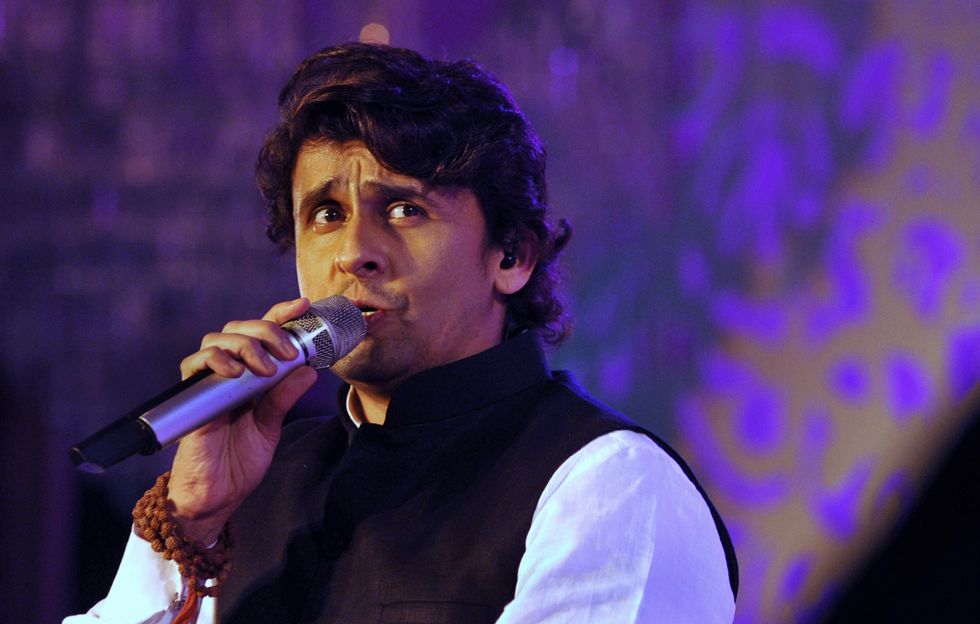Highlights:
- Bijuria returns in Sunny Sanskari Ki Tulsi Kumari after 26 years.
- Sonu Nigam’s original 1999 vocals were kept intact.
- The singer says “every song has its own destiny.”
- Varun Dhawan grew up dancing to the track in school.
- The revival came together naturally, almost like fate, says Sonu Nigam.
You don’t “remake” a song like Bijuria. You dig it up, dust it off, and, if you’re lucky, let it walk back into the world like nothing ever happened. Talking to Sonu Nigam about Bijuria finding its way into Sunny Sanskari Ki Tulsi Kumari felt less like discussing a studio decision and more like hearing about a strange, happy twist of fate. One minute the melody’s a memory; the next it’s on a film soundtrack.

The pristine time capsule
Here’s the interesting part. When the team looked for a fresh vocal take, they discovered the original master, the actual 1999 recording, intact. This wasn’t the plan, though. When the filmmakers approached him, Nigam was ready to step back into the booth. Then they made a discovery. The original audio engineer, a man named Eric, still had the master files. “You won’t believe it,” Sonu says. “But the files we’ve got are pristine. You don’t need to… they’re flawless.” So, they listened and the decision was unanimous: don’t touch a thing.
Reflecting on the process, Nigam gets philosophical. “I would have sung it differently today… I was not the same as I was back then. That Sonu died a long time back.” He’s not being dramatic for effect. He is simply acknowledging the fact that the young man who sang it is gone, but the song he left behind is, in its own way, perfect.
- YouTube youtu.be
The karma of a hit song
For Nigam, the whole journey of Bijuria feels like proof of some cosmic plan. He tells the story of how, while he and his manager were emotionally discussing the idea of reviving the track, Varun Dhawan was, completely independently, thinking the same thing for his film. Dhawan, who was just 13 when the song first hit, remembered dancing to it in school.
“Everything happens organically. You can never be too clever,” Nigam says. “Every song has its own destiny.” He believes an artist’s job is simple: pour honest emotion into the composition, then let it go. “Surrender, do your work and forget it.”
Singing for the actor, not just the song
Shifting gears from fate to craft, Nigam explains the real secret of his work. Playback singing, he says, is an act of translation; it’s not just about a great voice but about tailoring that voice to the actor on screen.
“When I sang for Govinda,” he explains, “I knew how he would sing the song. So, if I give him the opportunity in my voice, I’m assisting the actor by imagining what he could do.”
Sonu says he tailors his voice to suit the actor, whether it’s Shah Rukh Khan’s intensity or Govinda’s comic timing, and learned this collaborative method from Rafi saab, Kishore and Mukesh. That, he adds, is what turns a playback voice into a true performance partner.
There is also a stubborn streak of perfectionism. Sonu remembers being typecast early in his career and later insisting on having a say in arrangements: guitars, tabla, flute, saxophone. He wanted the album to feel like a real project, not a factory job, which is maybe why the original recording still holds up.

Reinvention? It’s about humility.
Reinvention, for him, isn’t gimmicks and flash. It’s humility. “Anybody who has the humility to look at your peers with respect and your juniors with even more respect, learn from them… that’s when you reinvent yourself,” he says. The key, he believes, is to genuinely enjoy the success of others without feeling threatened. That open-mindedness is the only real way to stay alive in the game.
And advice? He half-refuses to give any. “I don’t give advice,” he says. Then he gives it anyway: give time. Put the hours in. That’s how art becomes yours.

The perfection of the past
So, what’s the takeaway here? Not that old is always better, or that nostalgia is pure. It’s simpler: sometimes the smartest move is to recognise when something was already right. Sonu Nigam didn’t resurrect Bijuria so much as let its ghost step back into daylight, exactly as it was, and exactly as it ought to be. That, he suggests, is how you respect a song’s legacy.





